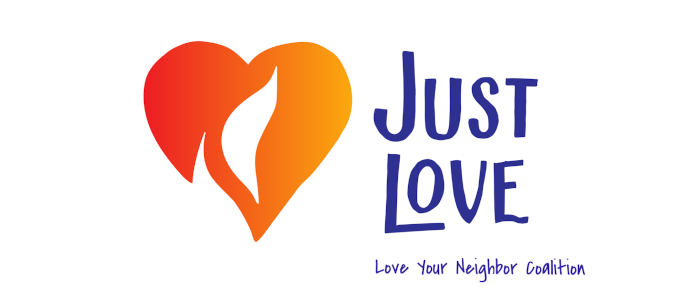LYNC Rejoices at key decisions of the General Conference!
Approval of Regionalization. Regionalization offers new hope for United Methodists around the globe with a structure that lets each work within their own context. BUT key parts of the plan must be ratified by a vote of all annual conferences.
Removal of harmful language to LGBTQIA people. Pastors can no longer be charged for performing in same-sex marriage, or for being in one. And gender identity is no longer a controlling element of ordination.
The Church has a new Revised Social Principles document. Developed in a dialogue process across the church, it offers a new framework for the church’s relationship to community, creation, the social world, and the political world.
There will be more bishops in Africa and fewer in the United States.
Ordained Deacons have a new set of sacramental rights.
You can still Learn about key issues by reading MFSA Plumblines.
Watch for more news and resources from LYNC.
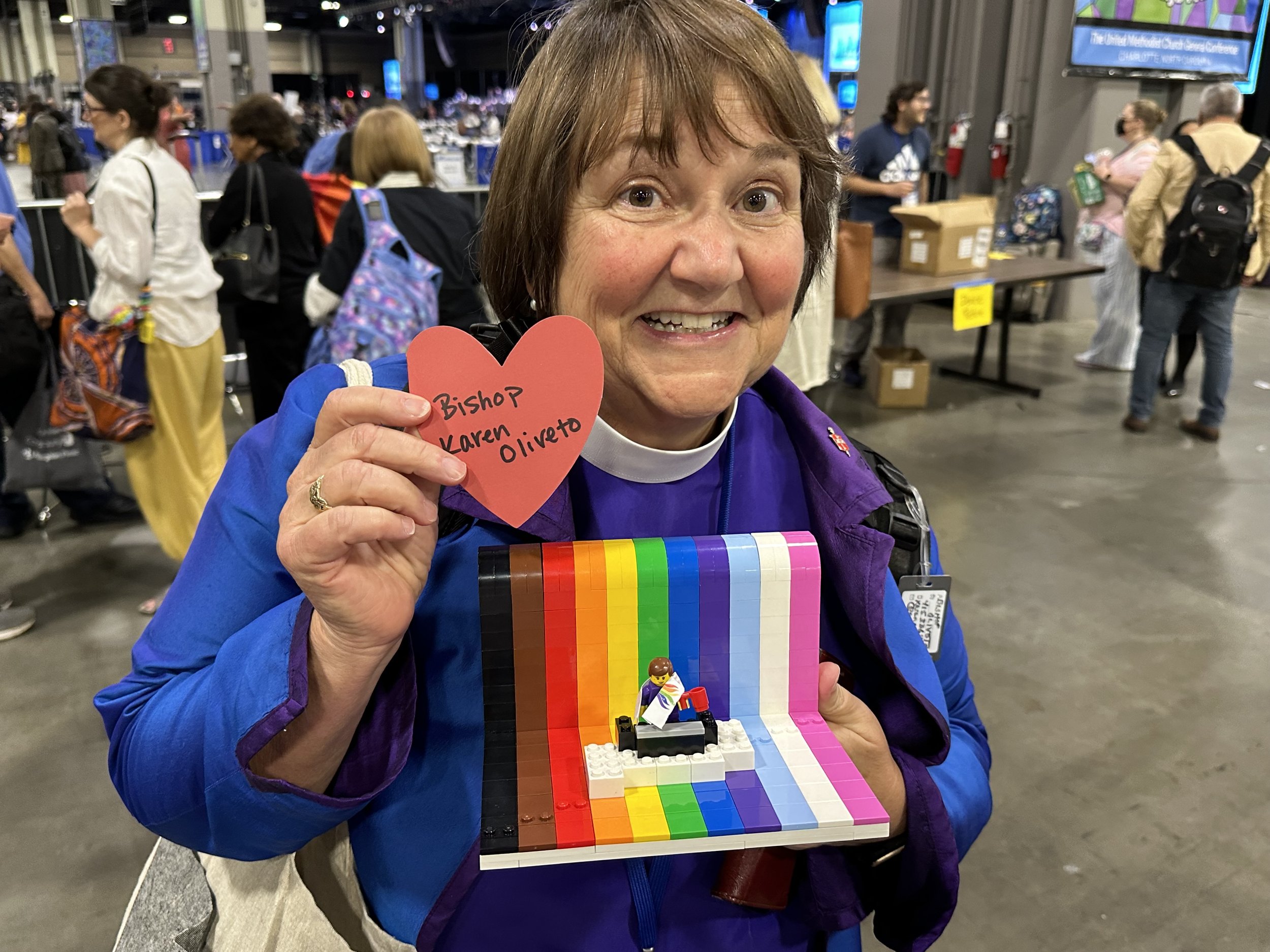
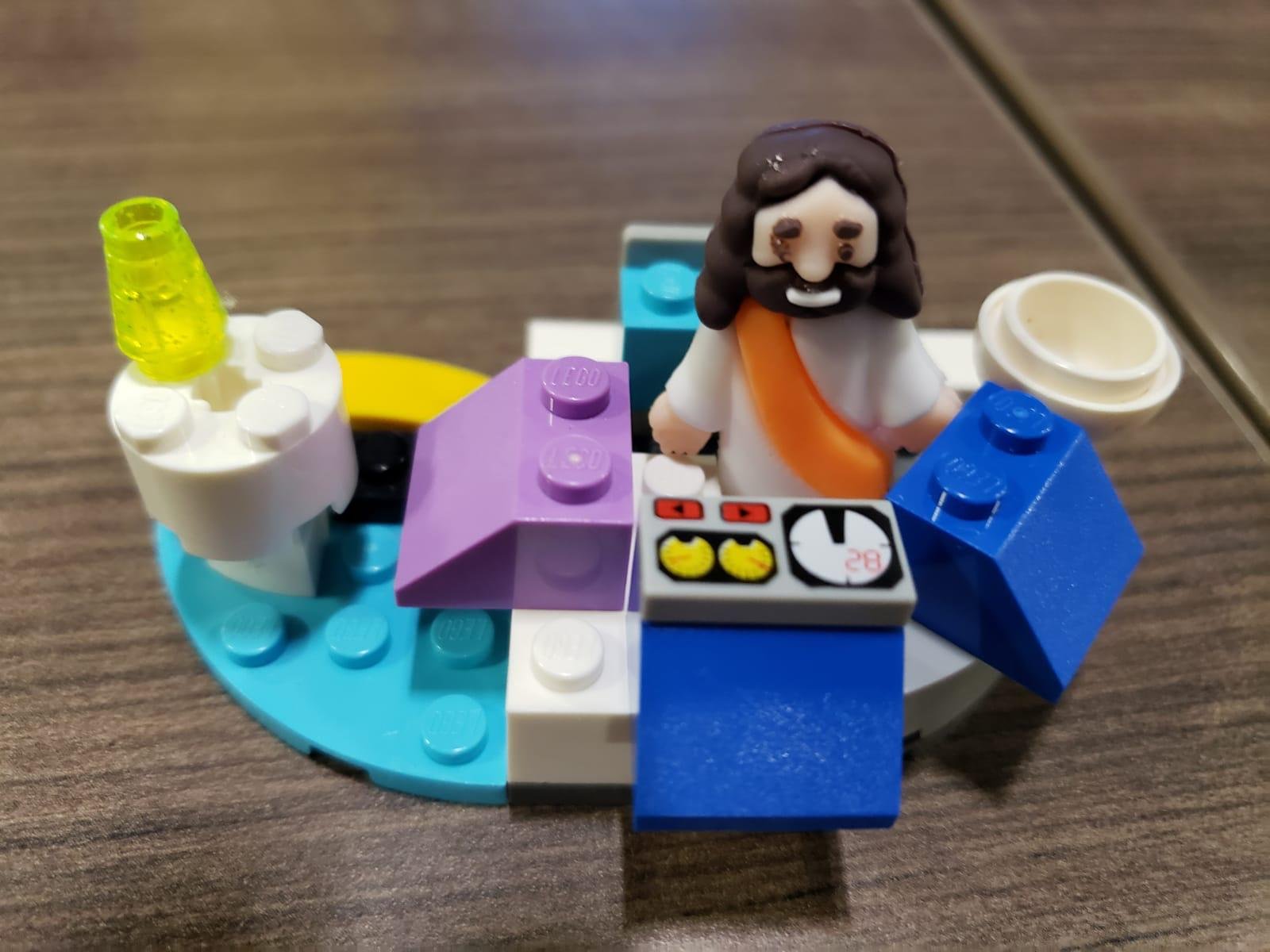
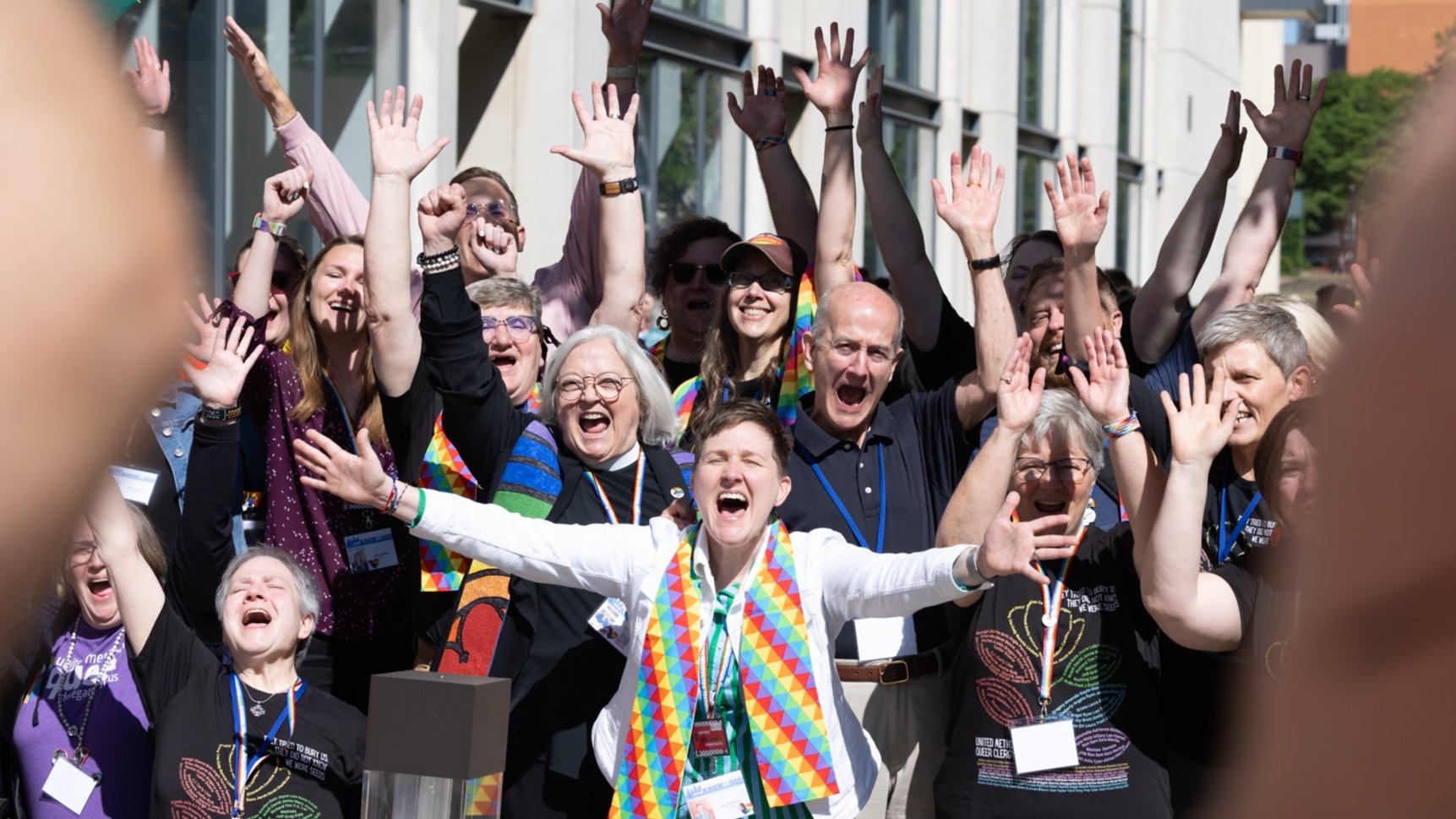
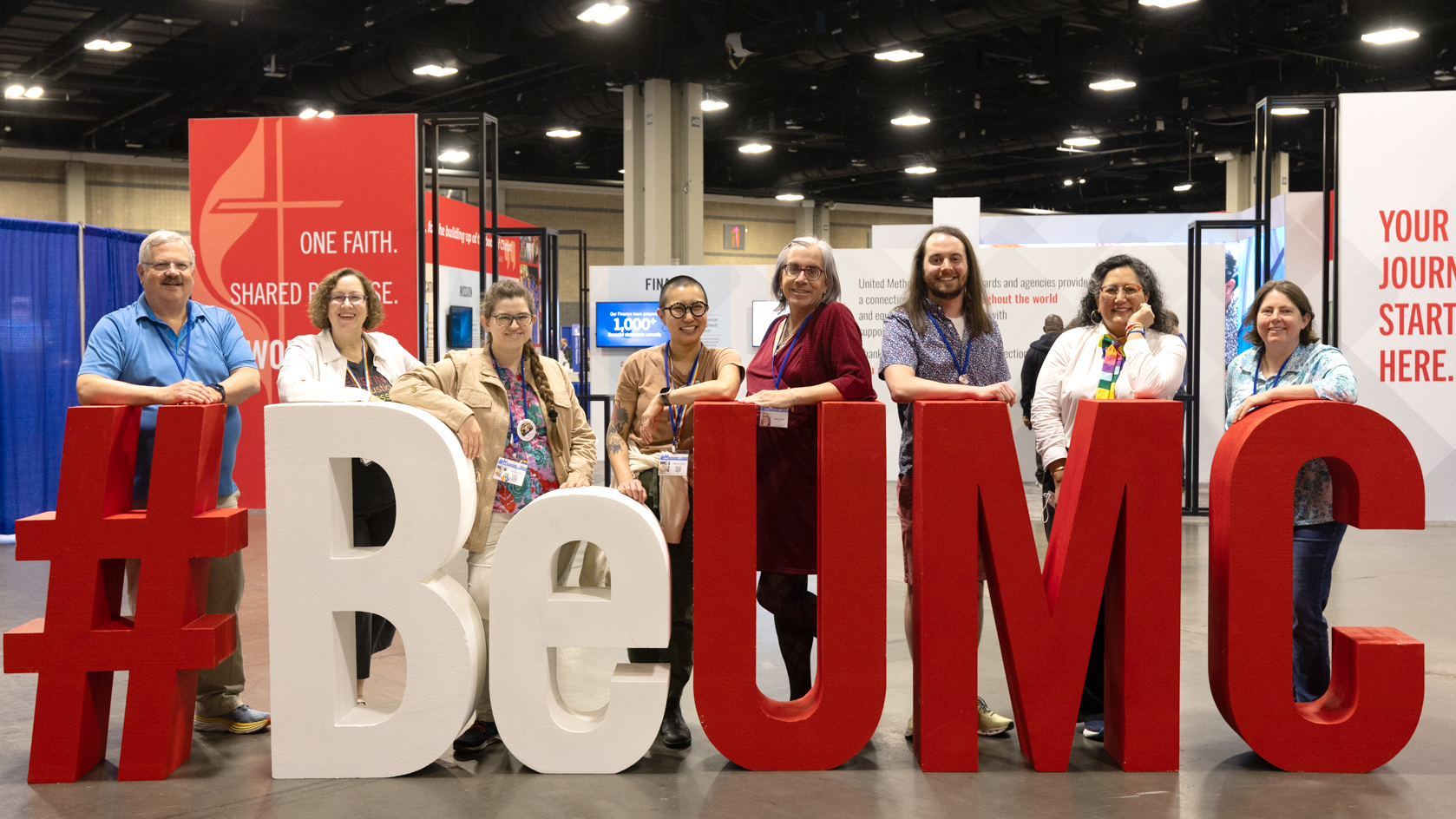
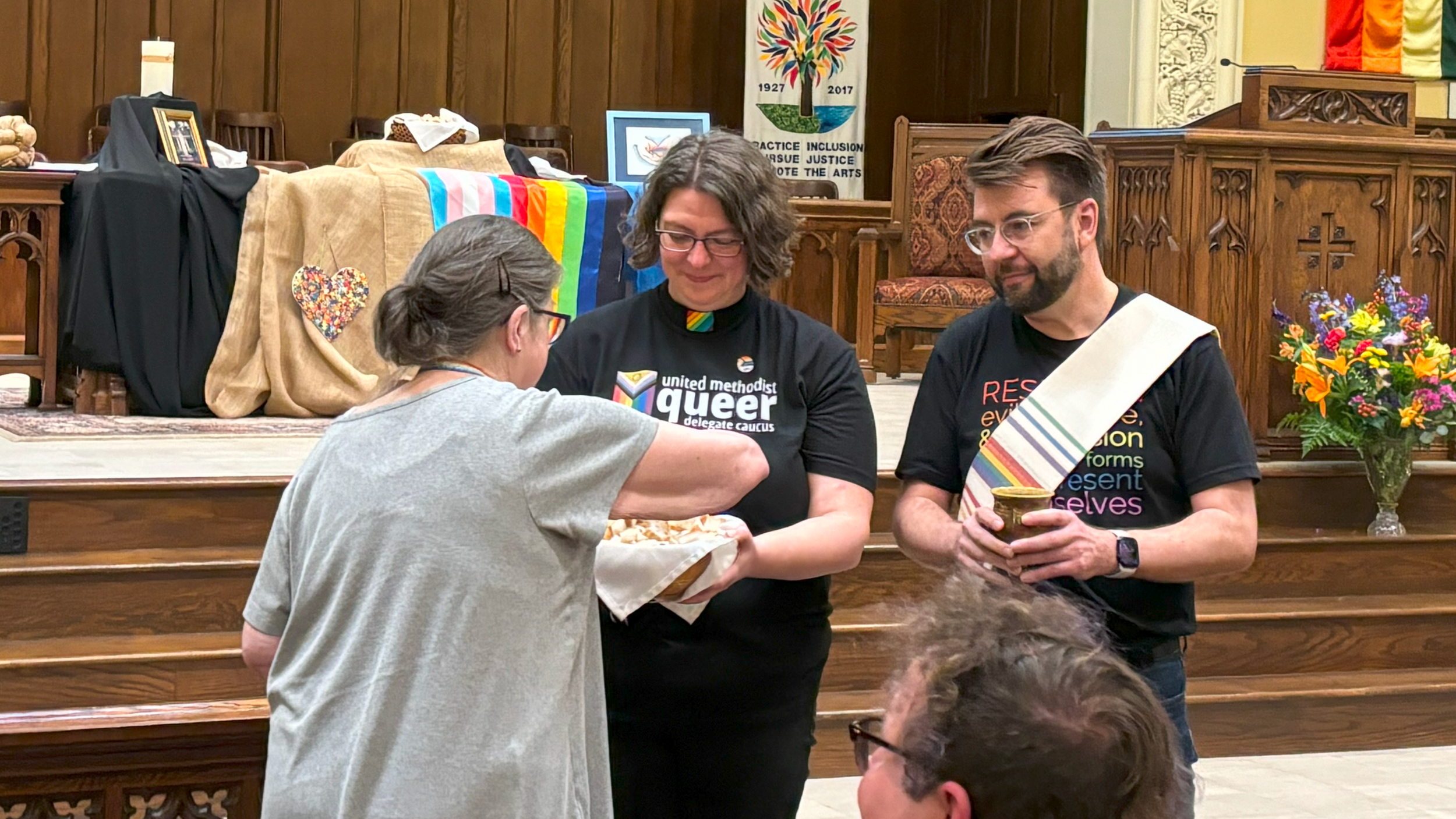
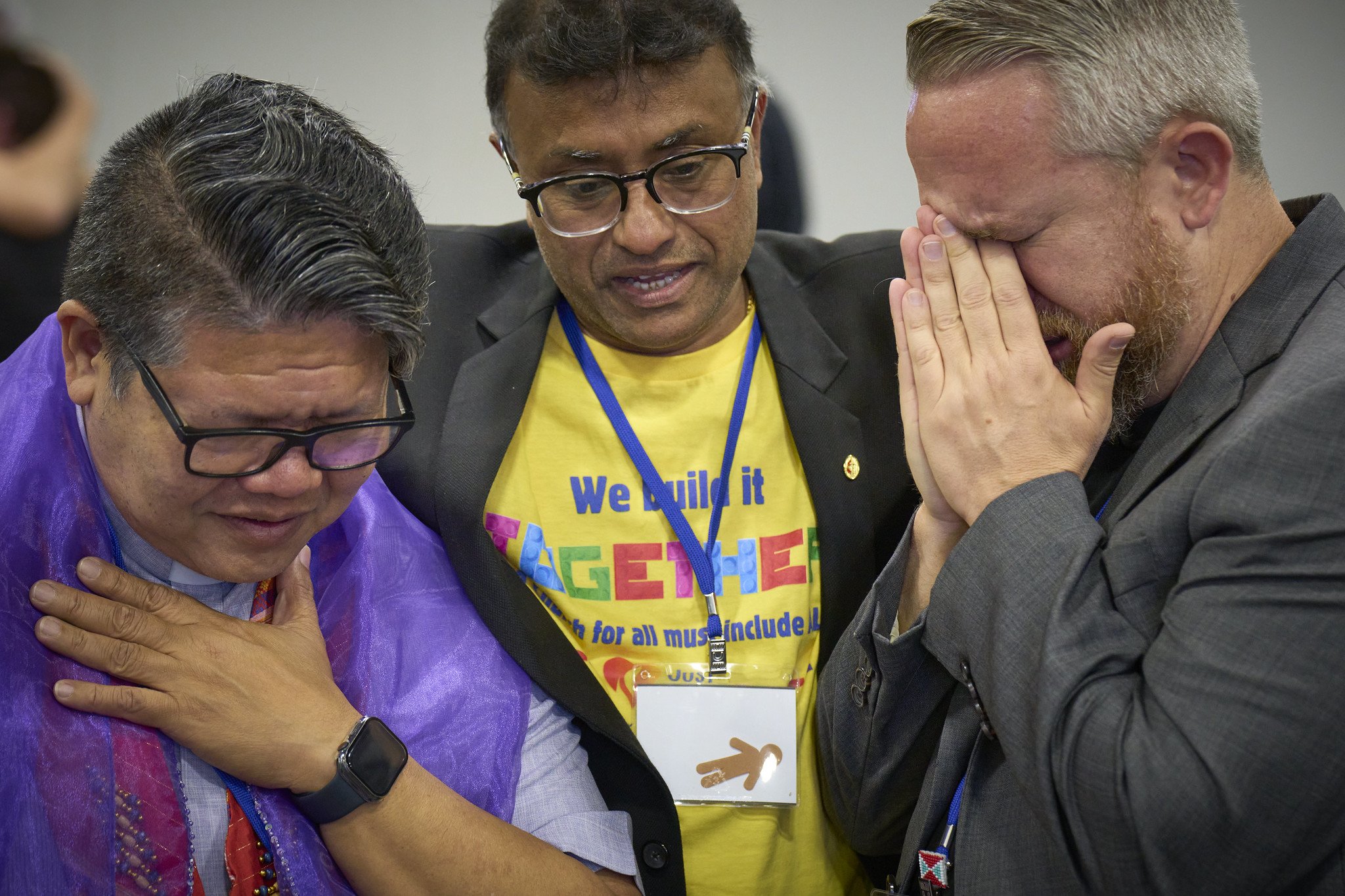
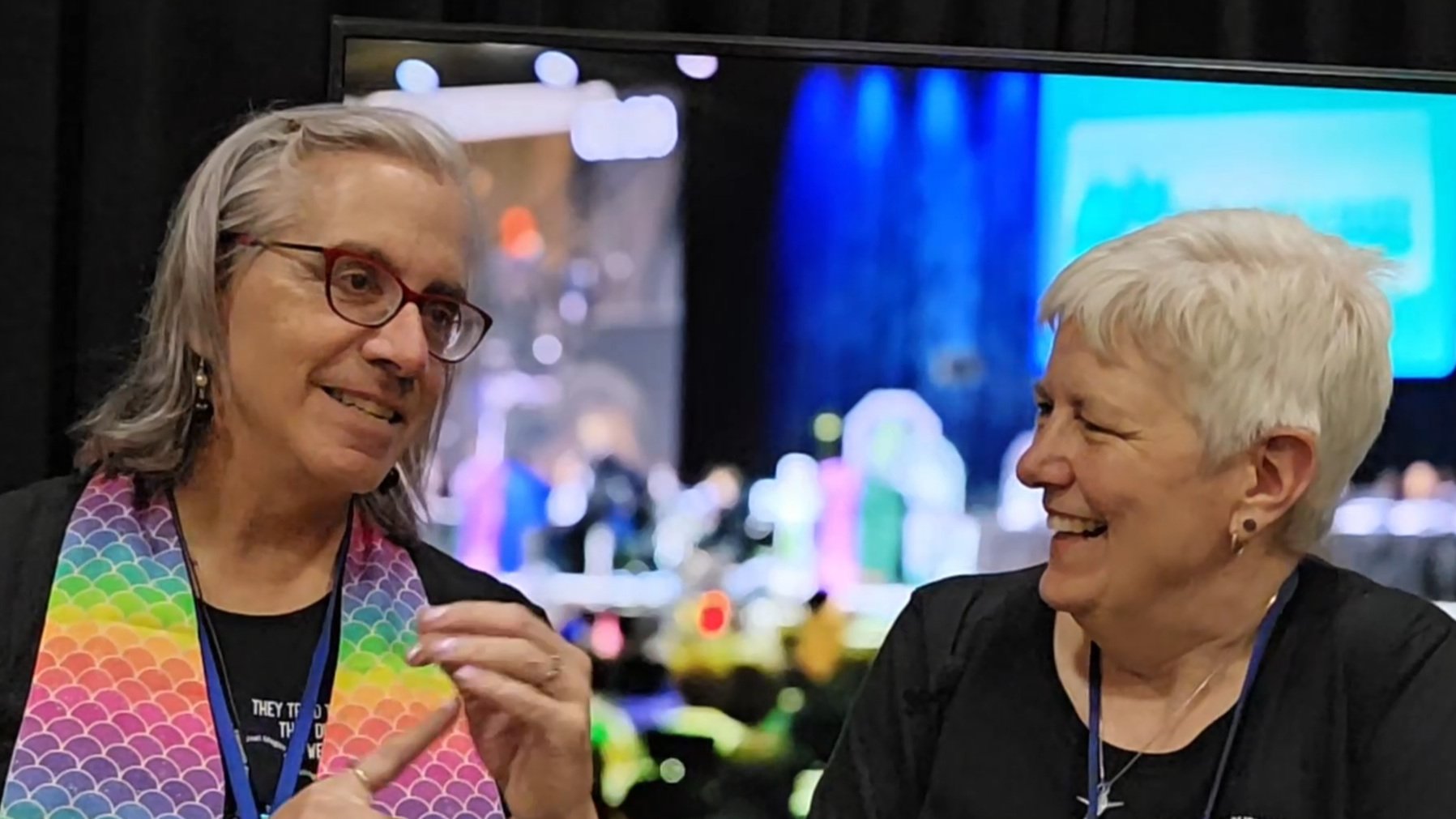
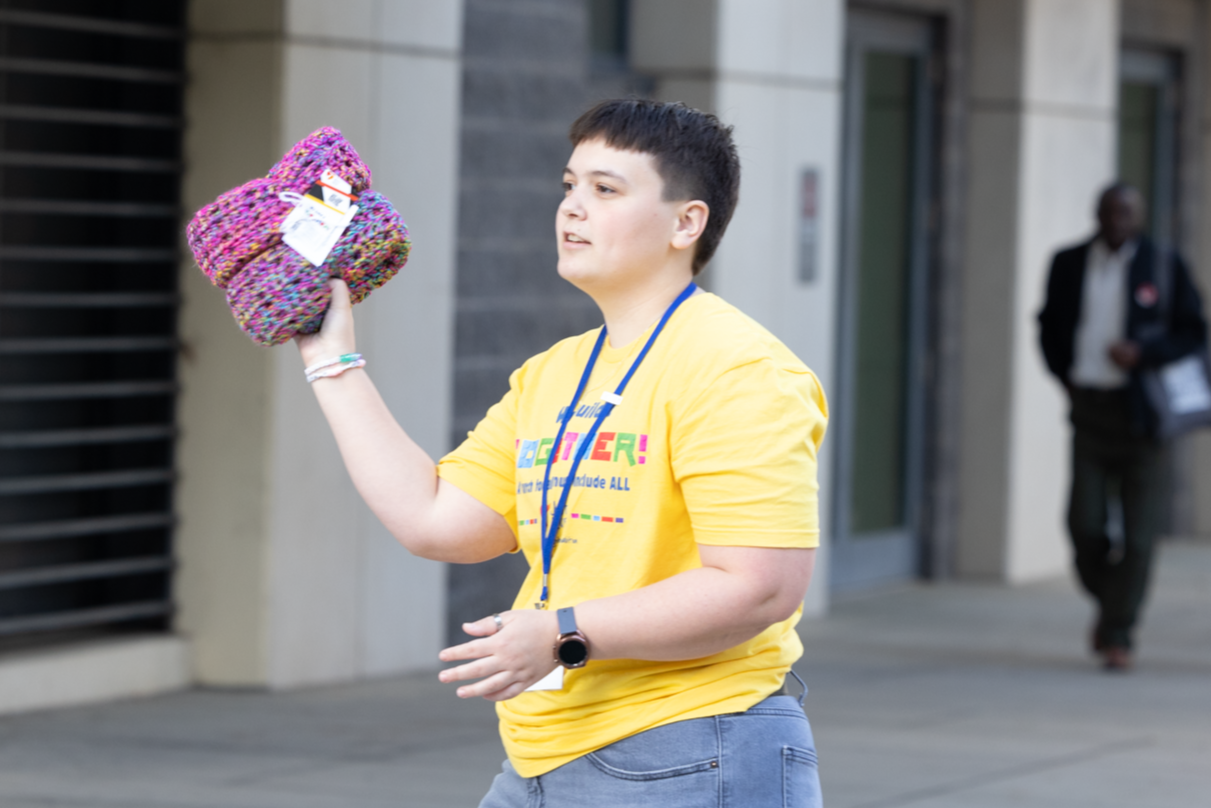
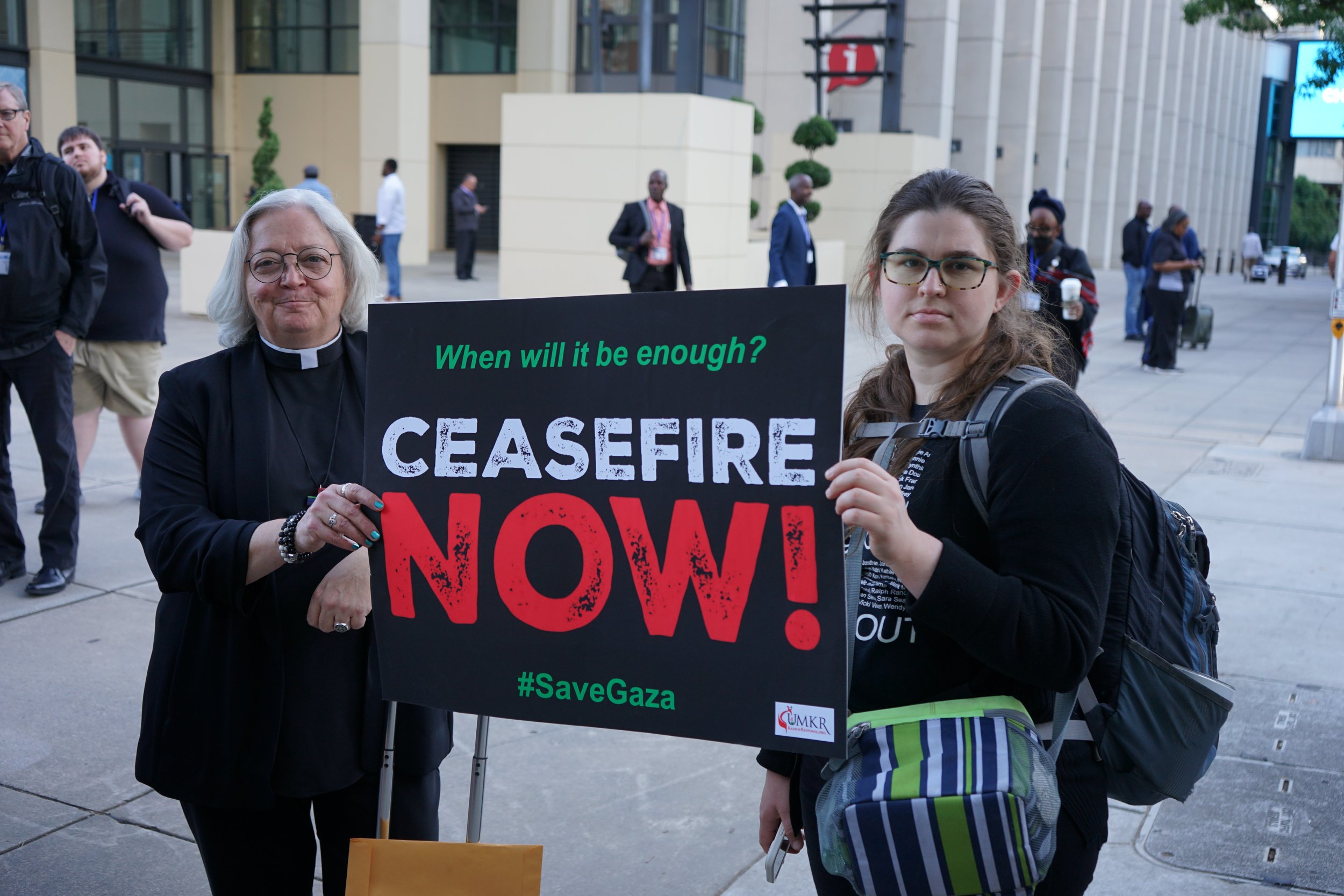
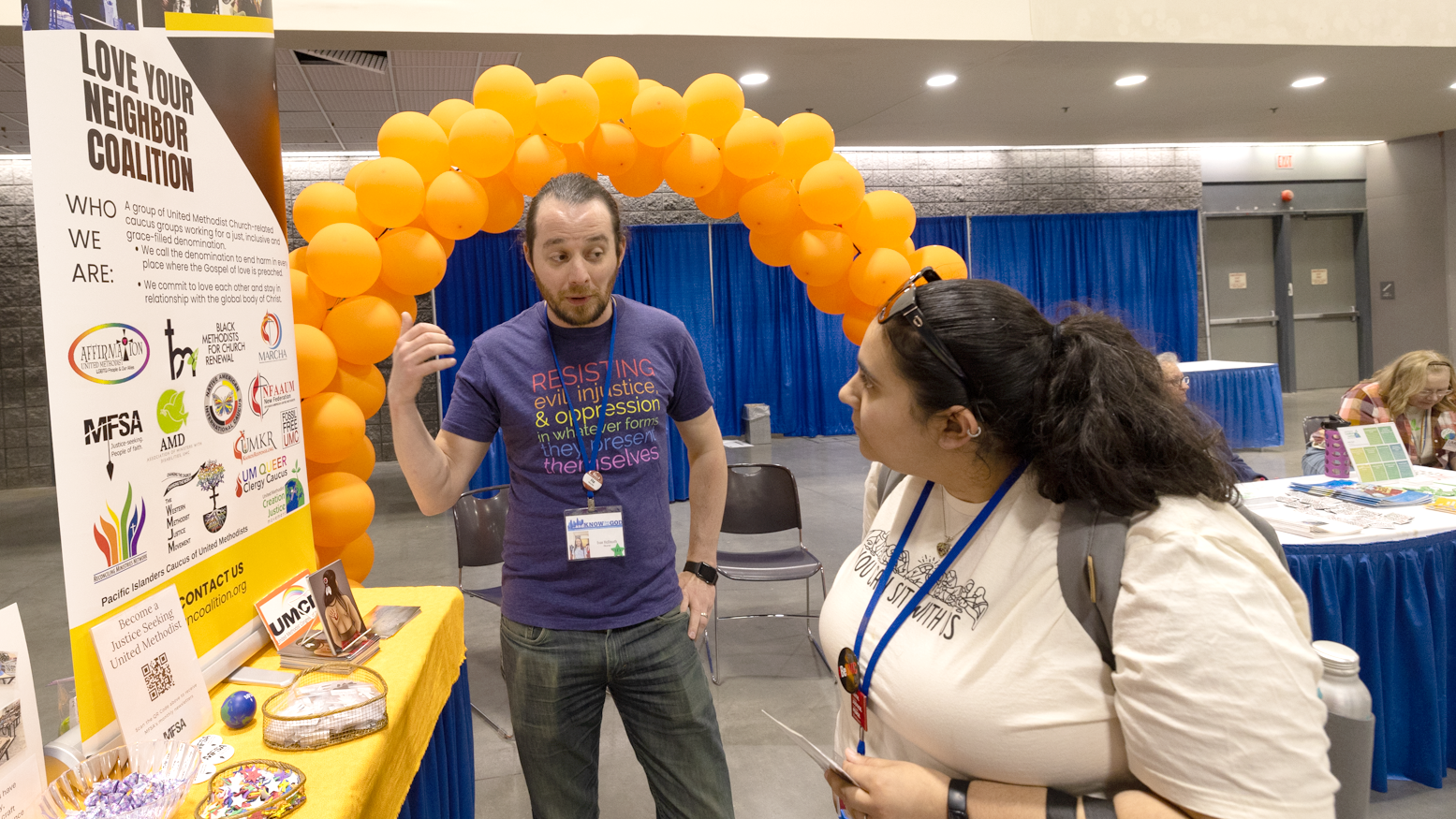
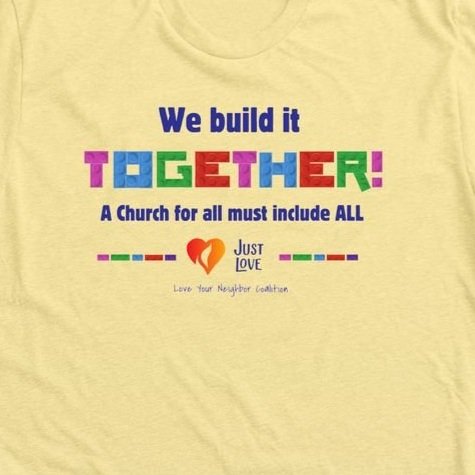











LYNC News
In a letter to Bishop Tracy Malone and other Council of Bishops leaders, the Love Your Neighbor Coalition (LYNC) urges the Council of Bishops to reconsider the Leadership Gathering called for in 2026.
“General Conference-Charlotte” is now behind us. LYNC was a strong presence with volunteers from around the world to spread the Good News of God’s inclusive and expansive love. The intersections of our work helped us to better understand how we are each impacted by inequalities, inequities, and systemic oppression
Today’s issue of JUSTice Highlights for a Just Church. Thank You for your support! What’s next for LYNC?
Today’s issue of JUSTice Highlights for a Just Church. While major issues have been resolved, legislation continues including key items of interest to the LYNC coalition.
May 1 and 2 brought a windfall of legislative victories for multiple marginalized groups in The United Methodist Church. Among them was a petition entitled “Granting Sacramental Authority to Deacons in Their Ministry Setting” which was adopted by the body of the Conference. Two deacons share their story.
Against the backdrop of historic legislation marking an end to 52 years of restrictions, the United Methodist Church unveils plans for a Center for LGBT Heritage, aiming to preserve and amplify the voices of queer individuals within the denomination.
Today’s issue of JUSTice Highlights for a Just Church. While major issues have been resolved, legislation continues including key items of interest to the LYNC coalition.
A summary of Judicial Council Elections. The new Judicial Council will take office at the end of the General Conference.
Position Papers
Seeking racial justice in The United Methodist Church is imperative for the well-being of the church as a whole and of its members. The petitions in this plumbline were identified by the Inter-Ethnic Strategy Development Group (IESDG), which comprises leaders of the denomination's five official ethnic caucuses.
Recognizing changing social issues and concerns since 1972, The General Conference 2012 called the General Board of Church and Society to engage in a process to revise them “with the goal of making them more succinct, theologically founded, and globally relevant.” The General Conference’s direction was to review and revise the whole document to live fully into our identity as a global church.
Reproductive justice is a movement led by Black U.S. American women, with significant landmarks in 1989 and 1994. There are four shared tenets of reproductive justice today, as stated by SisterSong, a Women of Color Reproductive Justice Collective, and often shared by the group United Methodists for Reproductive Justice:
“The human right to maintain personal bodily autonomy”
“The human right not to have children”
“The human right to have children”
“The right to parent the children we have in safe and sustainable communities”
After more than 75 years of ethnic cleansing and settler colonialism in historic Palestine, after 57 years of a brutal occupation in the small amount of land left for Palestinians, after an inhuman blockade that has been slowly destroying the people of Gaza since 2007, having authoritative reports from the world’s leading human rights experts that Israel has created an apartheid regime in all the land it controls, and especially faced today with the terrifying events we have seen in the Holy Land since October, we need to act on our convictions and strengthen our commitment to peace in Palestine/Israel.

